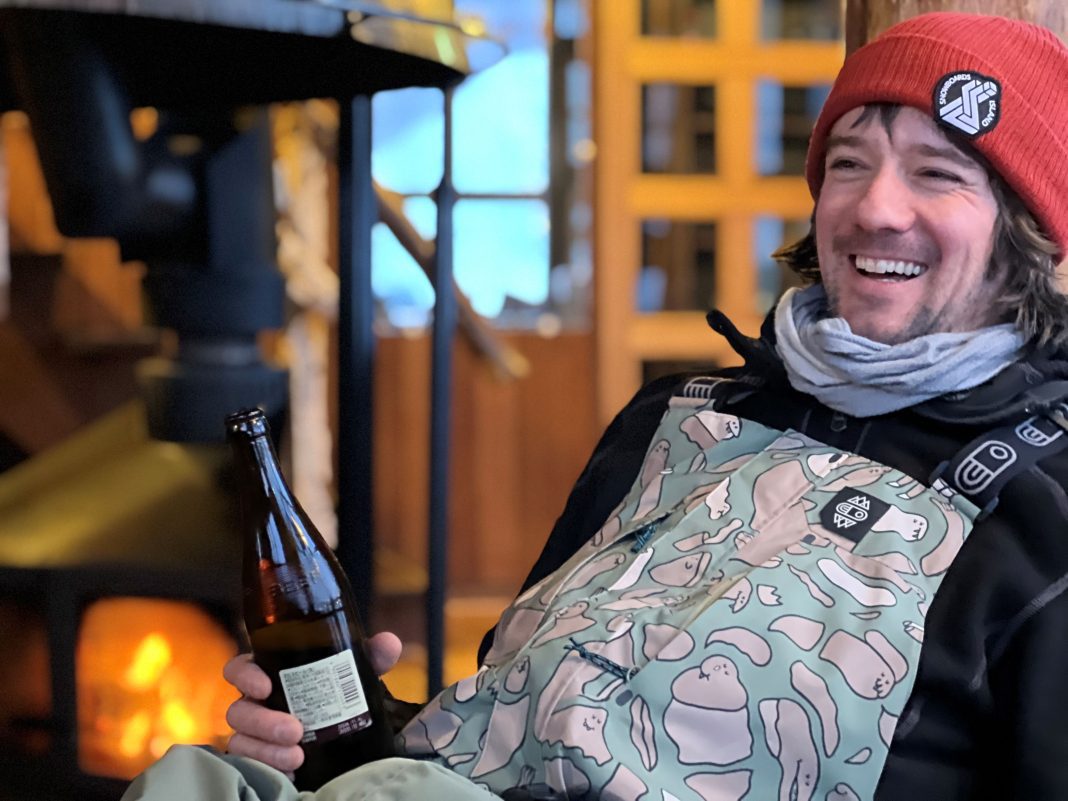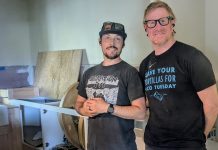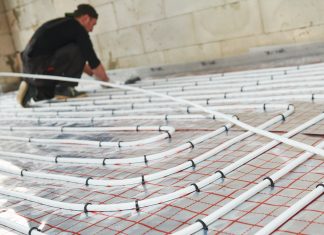Dan DeMay’s story begins in Chimacum, on Washington’s Olympic Peninsula. His home was full of music, with family and friends singing and playing together, and he got his first toy guitar at the age of 3. By his freshman year in high schoo, he was writing his own music and putting together a band.

After high school, DeMay lived in nearby Port Hadlock and Port Townsend, where he worked a variety of jobs and nurtured a range of hobbies, including a music production company called Spun Loud Productions. After a few years of putting together shows and events in the area, DeMay decided he needed to go to college, and he wanted to leave the peninsula to do it.
He earned his AA at Shoreline Community College and, after a short stint at the University of Missouri, finished his journalism degree at Western Washington University. That led him to jobs at papers in Skagit County; Bozeman, Montana; and Seattle. But when his current job became fully remote in 2020, he decided to settle in Bellingham full-time.
Effects Pedals and the People Who Love Them
For many electric guitar players, effects pedals are integral to creating a signature tone. Called pedals because they’re operated with the feet, they offer a wide variety of sounds: reverb calms jangling strings while chorus can add depth to chords. And drive pedals have been steadily on the rise since the invention of the electric guitar.
In those early days, electric guitars were plugged directly into an amplifier, but soon the rock ‘n’ rollers cranked up the volume, and discovered the gritty sound that comes from pushing an amp to its limits. Rather than risking their equipment, players put customized circuits into pedals that gave them a hard-driving sound, without stressing their gear. Now players can choose everything from light “overdrive” to hard “distortion,” or wild and wooly “fuzz.”

When DeMay was just starting out, he kept his gear very simple.
“When I was about 15, I bought a 1968 Fender Bassman 50 head from my buddy’s dad for 150 bucks. The thing about that amp is that you can turn it all the way up and it just doesn’t overdrive, so I needed a pedal,” he says. “I bought one of those plastic Zoom multi-effects pedals, then when I got into another band at 19, I wanted something a little hardier, so I bought a Jekyll & Hyde. That was my setup for years, and I didn’t want anything else.”
In other words, he got a great but very “clean” sounding amp and paired it with just one pedal at time. At a stage when most players are obsessed with buying, trying, and rejecting piles of different pedals, DeMay chose to keep it straightforward instead.
A New Start and a New Hobby
In 2018, after college and the start of his professional life, DeMay decided to start fresh, with a new guitar tone. He called a friend, a professional guitar technician, and asked what people were into at the time.
“He ran down a list of stuff, and then he said, ‘Or you could just build your own.’ That sparked my curiosity,” recalls DeMay, “I started looking up circuits and came up with a couple: the Electra distortion, which is really simple, and the Bazz Fuss, which has been bouncing around the internet for years.”

Once he started down the do-it-yourself route, it wasn’t long before he was working with “breadboards,” simple, non-permanent circuit boards that allowed him to swap different electronics in and out of circuits. From there he stepped up to “stripboards,” which allowed him to permanently mount the components that he liked, and soon he carried two new inventions to the rehearsal studio.
At practice, the drummer thought the pedals sounded great, and suggested DeMay put them together in one pedal.
“I wasn’t that jazzed yet about what I was coming up with, but I decided I would make it for him as a Christmas present,” DeMay says. “I decided it needed some art, and that I needed to call it something and come up with a pedal company name — just for fun.” When the bass player and other guitarist heard and saw the result, they decided they each needed one, and suddenly “just for fun” began to look a lot more serious.
The Hobby Becomes a Hustle
Very quickly, DeMay turned from making enclosures — the metal boxes that hold the electronics — one at a time to ordering several all at once. Rather than cutting and customizing each stripboard for each pedal, he designed printed circuit boards to cut down production time. Rather than spray painting the boxes and adding a decal, he receives powder-coated enclosures that are then decorated in different ways.

The artwork is an important facet to DeMay, who continues to silk screen some of the pedals himself. “In terms of the art my partner, Lisa Baumann, is a really important contributor,” he says. “Whenever I’m doing a design I take it to her, and she knows when it’s right.” Baumann maintains an Instagram page that highlights her photography and design.
DeMay started slowly, working with a friend to create a demonstration video that led viewers to his Instagram page. Soon he was making connections with other pedal builders, as well as electronics suppliers, enclosure builders, and artists. In time, his pedals started selling across the country — and then around the world.
Today and the Future
Now DeMay has a website that includes other people’s demo videos, which give curious shoppers an idea of what his pedals sound like, plus a catalog of his current offerings. He’s quick to point out that locals can also find his pedals for sale at Champlin Guitars in downtown Bellingham, a perfect outlet for reaching the devoted guitar lover.

DeMay has retired a few of the products he developed. Even though they were successful, he prefers to push forward and gather new skills, rather than turn out the same design over and over. Right now, he’s working on a new drive pedal for bass players, and has started teasing a collaboration with a Bellingham business that’s slated to be released in the summer of 2024.
It’s worth keeping an eye — and an ear — on Spun Loud, whose hand-crafted wares are being heard around the world.











































